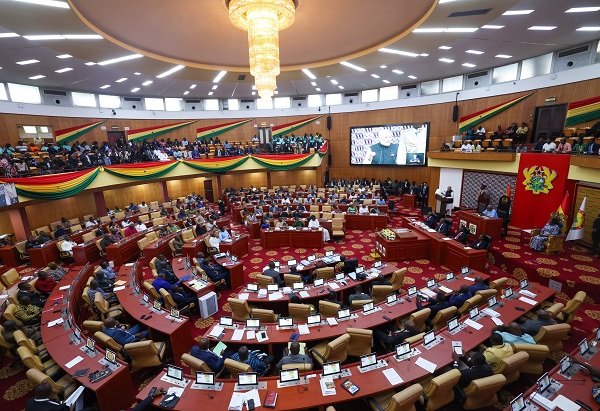By Philip Antoh
An investigation conducted by Corruption Watch an initiative by the Ghana Centre for Democratic Development (CDD-Ghana) has identified many key state institutions, including the Ghana Police Service, Commission on Human Rights and Administrative Justice (CHRAJ), Parliament, the Judiciary, and the Attorney-General’s Department as among key state institutions that have violated the Right to Information (RTI) law.
Due to this, these institutions have been fined to the tune of GHC5.6 millions for violating the RTI law.
The six-month investigation, which took place from February to July 2025, revealed that over 70 decisions made by the RTI Commission (RTIC) resulted in fines amounting to approximately GHC5.6 million against at least 60 public and private entities.
The report named “Saga Over RTI: Millions Paid as Penalty” indicates that the Ghana Police Service has already settled GHC450,357 in fines, while CHRAJ still owes GHC30,000.
Other offenders include the Parliamentary Service (GHS53,785 paid), Judicial Service (GHC100,000 still owed), Attorney-General’s Department (GHS50,000 still owed), and SSNIT (GHC200,000 paid).
The Agricultural Development Bank (ADB) had the largest fine at GHC1.365 million, while the Ministry of Education paid GHC260,000.
The Lands Commission and the Public Procurement Authority were fined GHC150,000 and GHC100,000, respectively.
The report also expressed concerns that state agencies have been using taxpayer funds to cover these fines, which undermines the intent of the RTI law.
In terms of frequency, the Ministry of Education faced the most penalties with four, while the Ghana Police Service had three.
Other repeat offenders included the Ghana Education Service, Judicial Service, Lands Commission, Ministry of Energy, and the Urban Roads Department.
Corruption Watch, an initiative by the Ghana Centre for Democratic Development (CDD-Ghana) and its partners, pointed out that the findings highlight a troubling trend where governance institutions designed to ensure accountability are failing to adhere to transparency laws.


